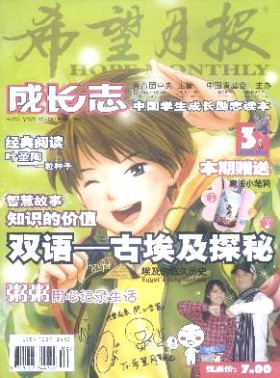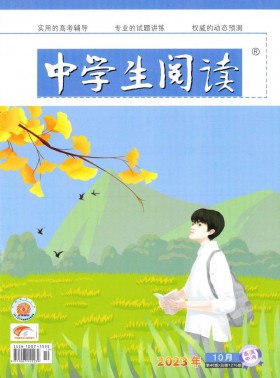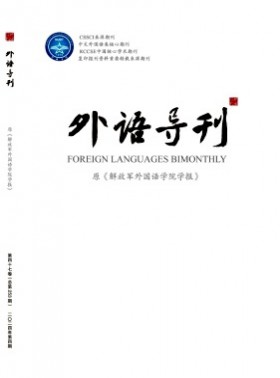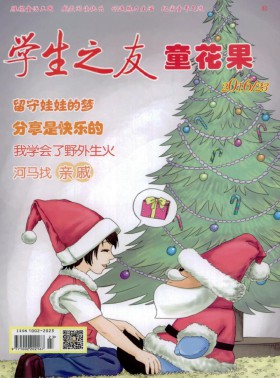前言:中文期刊网精心挑选了成语填空范文供你参考和学习,希望我们的参考范文能激发你的文章创作灵感,欢迎阅读。
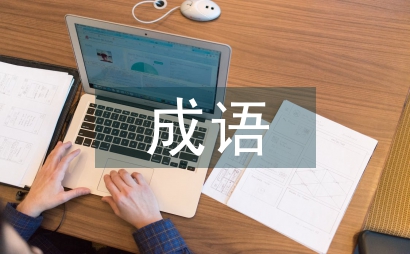
成语填空范文1
意思是鸡飞走了,蛋打破了。比喻两头落空,一无所得。
出自周骥良《吉鸿昌》:“只要他一进关抄了咱们的后路;那就鸡飞蛋打;不可收拾了。”
例句:照他现在的干法,一定要闹得鸡飞蛋打,才算完事。
近义词:人财两空、卵覆鸟飞、巢毁卵破、两败俱伤、水尽鹅飞。
成语填空范文2
解释:看到钱财,眼睛就睁大了。形容人贪财。
出自:明朝兰陵笑笑生《金瓶梅词话》第八十一回:“弃旧迎新,见钱眼开,自然之理。”
近义词:见利忘义、见钱眼红。
反义词:见利思义。
语法:连动式;作谓语、宾语;比喻贪婪爱财。
成语填空范文3
天马行空,独往独来,听不进一点不同意见,这样的人没有不跌跤的。关于成语天马行空的那些可以摘抄的呢?这里给大家分享一些关于成语天马行空的近义词,供大家参考。
一、天马行空含义天马行空(tiān mǎ xíngkōng),汉语成语。指天马奔腾神速,像是腾起在空中飞行一样,比喻诗文气势豪放,也比喻人浮躁,不踏实。出自《萨天锡诗集序》:“其所以神化而超出于众表者,殆犹天马行空而步骤不凡。”
二、天马行空近义词龙飞凤舞
三、天马行空造句1、你是如何天马行空开发、测试、更新、维护和思考系统的?
2、那时我经常把花生酱和果冻三明治装好,放进车篮里作为午餐,出发来到这里。
我几乎整天都待在树上,天马行空地幻想着。
3、这个一度天马行空的幻想已然成为事实。
4、为免人们指责他们(和我)思想天马行空,让我们来看看一些不容争辩的事实。
5、独自驾车上班的旅程,是享受与自己独处的好机会,可以天马行空,聆听自己最爱的音乐。
6、在这则天马行空的安全性行为商业广告中,安全套在厨艺及台球比赛中均战胜了艾滋病毒。
7、《一千零一夜》中美妙故事,帮助游客们展开天马行空的想象,使他们非常渴望体验土耳其浴。
8、2010年2月,天马行空的宇航员们为空间站安装了这座新的观景台,给这座轨道上的观察哨增添了家的感觉。
9、我让我的思考与梦想天马行空,毫无限制。
10、天马行空加上异想天开的音乐风味,总让人忍不住怀疑雀斑的确是来自外星球。
11、自性等与肉身的交往流通,在夜梦中没有意识的控制,可以天马行空地随意建构各式各样的故事情节;
12、给孩子一个气球,他就会开始天马行空。
13、一个完美的故事需要有天马行空的思想,完全不用考虑简约的原则。
14、人们可以自由想象,天马行空,挖掘打造出一个全新的自我。
15、那些谈话,两个研究意识的喝醉的研究生,消磨下午的时间,天马行空。
16、今天,天马行空的趣味化产品更是流行时尚的标志。
17、我们有灵感,我们有技术,所以能够天马行空,大胆地做好我们的设计;
18、想像永远可以天马行空,大家可能说这是很无聊的事情,但是我这一晚脑里就是想著这些不著边际的事情。
19、即使是在我天马行空的梦里,我也未曾想到有一天我会来到一个如此美丽的国度。
20、如果你属于天马行空式的人,你需要让自己的所有工作出现在眼皮底下,否则,它们就相当于不存在。
21、二股绑定八股在其脚下,制约八股反弹后,下一步将一脚踢开八股,天马行空,独往独来。
22、这部科幻史诗片在「魔鬼终结者与「铁达尼号导演詹姆斯柯麦隆天马行空的想像力下,保证会成为登上大银幕最精彩的作品之一。
23、汽车生产商们通过车展来展出概念车(通常都是手工打造且独一无二的样车),将媒体和公众对未来车型所展开的天马行空的想像具象化。
24、新快报讯据英国《每日邮报》28日报道,科幻电影经常出现一些天马行空、样子稀奇古怪的车辆,令人不禁想据为己有。
25、从这点看来,你将不会再出现天马行空的思想“如果我这么做会怎么样?”
26、不知道为什么就是喜欢跟你天马行空的聊天,而且总是很骄傲的告诉别人有你这样一个好朋友。
27、是次展览展出少娟34幅天马行空的作品,色彩丰富,线条独特,带领你走进她的梦幻世界。
成语填空范文4
辽田油田公司作为一家能源企业公司,具有企业负担重,开采成本高等特点。根据辽田油田的实际情况而言,其开采的石油产品大多为高凝油,产品的生产成本较高,使得辽河油田在石油领域的竞争压力加大,如何在激烈的国内外激烈的石油竞争中找到优势,是现阶段辽田石油公司亟待解决的问题。现阶段,很多石油公司选择全过程成本控制管理这个方法来节约成本,对于辽河油田而言,这种方法是否得当,是否有实施的价值,以及如何实施,是本文将要探讨的一个重点,如果运营得当,这种方法将使辽河公司在控制成本方面,进入一个新的里程。
二、严格对施工质量进行管理和控制
1.充分准备好施工前的工作
首先,施工过程中各个方向和专业的质量监督员应熟悉图纸、了解现有技术和施工需要的技术、找出技术难点和关键部分,做好对技术方面的监督工作。同时,检验各施工单位及个人是否具有相关施工资质和能力。需要其它相关部门协调的工作应提前与所属主管进行协调和安排,做到责任到人,避免因责任不清等问题影响工程质量。质量监督员应与项目生产组织部门提前沟通,充分了解工程的施工计划,包括阶段性及全局性计划和目标,在对整体内容熟知的基础上,按照不同时间节点和阶段设置合理的质量检查点,对各个时期检点及根据实际情况应做的检查变更都做好提前的应对方案和必要的应急方案。
其次,质量工程师应与各个方向和专业的质量监督员进行沟通和商讨,制作相关质量监督方案,根据油田工程建设的特征,明确施工过程的重点和难点,并按照分管不同设置责任人,使监督过程系统化、明晰化。对可知的风险进行提前预知,做出应对风险方案,并按照风险大小、存在可能性大小等因素分类管理,对风险的随时把控有利于对整个工程质量进行管理和控制。
2.以工序为单位严把质量关
在施工质量的管理上,应注意施工源头即材料采购方面的严格准入。工程采购应在已经合作过的合格供应商中进行挑选,或者由相关质保人员对供应商进行调查,充分考虑供应商的供货资质、服务质量等因素,对于合格的供应商可纳入供应商档案。对于监工中,各个监察点的设置要紧抓重点过程,注重主要工序,实施过程控制,监察点不能做表面工作,而是以工序为单位,真正掌握随时的施工进度和各类施工条件,根据具体情况调整工程实施进度和方向。
三、高效的成本控制对策
在油田建设工程中,质量、成本、进度、安全是项目管理的重要因素,而成本控制则是企业取得经济效益的关键性因素。辽河油田项目在成本控制过程中,依据实际情况分析得出成本控制主要分为项目的实施风险成本、策划成本、施工成本、结算成本。
1.项目的实施风险成本
在项目的实施风险成本中,最重要是把握好对整个项目的综合风险的评估和应对,油田建设工程首先要考虑该工程的可行性,同时考虑技术、收益等因素,完成项目的风险评估,根据油田建设整体战略的需要,进行系统论证,做出相应的优化方案,最终提出投资决策。
2.项目的策划成本
整个油田建设工程中,应首要考虑资金成本问题,有计划的将资金占用率达到最低,同时保证整个施工过程高质量、高水平的完成。一方面要满足现阶段油田工程建设的需要。另一方面争取最大的资金流动,保证工程及单位的未来发展。对整个工程中的资金成本和流动做到有组织、有预测的方案,合理进行安排和计划。
3.项目的施工成本
项目的施工阶段是整个油田建设工程中的重中之重,同样也是成本控制过程中的重点。在实施过程中的成本,应科学的对成本进行控制,可以利用总承包管理的相关方法。另外,应避免交叉作业的行为,坚决杜绝返工等严重造成资源和成本浪费的行为。在相关招标文件中,也应该熟悉相关资料和文件,减少签证变更。建立相关资金管理系统,科学安排和利用资金。
4.项目的结算成本
在项目进行结算过程中,应选用专业的人员制定核对备案等相关规章制度,严格在规章制度内办事,对相关人员进行培训,对各监查点实行严格把控,做到到现场进行核对,同时对标底外的变更、签证等进行索赔。在最后结算阶段,应熟悉了解到整个过程的合同、设计图纸、投标报价等有关工程实施的内容细则,避免多算、误算等情况,如实报出整个建设工程项目的真实成本。
四、结论
无论是油田建设工程还是其他项目类工程都应该严格把控质量和成本,确保工程实施的科学性和系统性。辽河油田深入贯彻“全面投资控制”的观点,注重节约投资,将质量管理和控制成本的方方面面都实行责任管理,在保证项目安全、高质量的完成下,取得了经济效益最大化。
参考文献:
[1]李运生.浅谈关于建筑施工中的安全、质量和成本控制分析[J].中小企业管理与科技(上旬刊).2012(08).
[2]南青岩.工程项目施工质量管理与控制[J].中小企业管理与科技(上旬刊).2012(05).
[3]李卓.浅析油田地面建設工程的施工项目管理[J].中国石油和化工标准与质量.2011(06).
成语填空范文5
关键词:天然气;施工管理;质量控制
中图分类号: TU71 文献标识码: A
引言
能源供应和环境保护已经成为了制约我国经济和社会可持续发展的两个重要瓶颈问题,大规模地推广应用基本上对环境无害或者危害程度低的环保能源已经成为了我国的必然选择。在此大背景下,天然气的应用范围越来越广,对于缓解我国的能源紧张情况、降低经济发展过程中的环境压力大有裨益。天然气工程的质量水平会直接影响天然气供应的安全性和稳定性,强化对天然气工程施工管理与质量控制具有重要的现实意义和价值。
1、天然气工程特点
①影响工程质量的因素多,质量控制难度大。天然气工程从方案设计之初到工程的完工,在这漫长的工程周期中,影响工程质量的因素非常多,既包括主观方面的,也包括客观方面的。例如,工程设计方案质量、施工工艺水平、施工材料质量、施工人员及其管理人员素质、自然环境因素等均会对天然气工程质量产生影响。
②隐蔽工程数量众多。天然气工程存在着数量众多的隐蔽工程,例如,穿越地下障碍、埋地钢管防腐处理、埋地钢管焊接处理、埋地钢管的开挖与回填等等。鉴于隐蔽工程数量众多,质量管理人员需要认真督查并对相关检查进行认真记录,强化焊接作业人员素质,否则非常容易出现各种各样的质量问题,为天然气工程的后续使用埋下事故隐患。
③工程质量标准严格。天然气工程对本身的工程质量有着严格的标准和要求,在工程当中所使用的各种材料、管件及其相关设备必须要符合相关规范规定,不论是材料质量方面,还是承压要求方面,其严格均是非常明确而且严格的,这也决定了天然气工程质量管理和控制的难度。
2、天然气工程质量监控
天然气工程质量监控在施工环节中非常重要。一定程度上保证了天然气工程施工的质量,同时也保证了竣工之后能够顺利的投入使用。并且加强对天然气的质量监控能够保证在施工过程中不会出现天然气泄漏、爆炸等危害。天然气工程的质量监控是国家进行天然气使用和推广强有力的保障措施,让天然气投入生产生活中能够使用户放心、安心。
2.1、保证天然气施工设计的质量
天然气施工设计的质量是保证整个工程能否顺利进行的标准,对工程施工起到一定的指导作用,同时也对工程施工质量造成起到一定的影响。因此在前期的天然气施工设计上,要加强质量监控和审核工作。工程设计必须满足天然气施工建设的实际情况以及国家法规的要求,同时在设计阶段还要合理的规划施工材料的预算和工程的造价。除此之外,工程设计完成之后还要对各个环节进行严格的审核,实地堪察计划能否满足实际工程的需要。尽最大可能完善和优化施工方案,使工程设计在施工环节中不会出现指导性的错误。
2.2、建立健全质量监督制度
对天然气施工质量的监控贯穿于整个天然气工程施工的过程中,每一个环节都紧密的相连。因此在实施监控过程中,首先必须要建立一个相对完善的监督管理体系。不仅要对施工技术人员进行监督,保证技术人员的专业技术素质和施工人员的工作能力以及提高技术员工的政治素养和责任心。而且还要对已经完成的工作进行检查,确保工程的质量,不会因为工程关键环节的失误而导致整个工程发生瘫痪,引起工程工期的延长,造成经济的损失。
2.3、严格监督工程施工
天然气工程是一项危险性较大的项目,所以在施工阶段,要严格对施工环境进行监控,规范设备的使用。严格控制进行施工现场的人员,对进入施工现场的人员做好防护工作。在施工现场容易出现事故的地方设置相应的警示牌,做出提醒。施工前期对材料型号、材质必须经监理单位验收,施工材料中不能出现质量不过关或是不符合实际施工条件现象。同时还要严格考察施工现场的环境,特别是对施工现场是否出现漏电情况的检查。
3、天然气工程施工管理
大量天然气的投入使用,能够提高人们生产生活的质量,同时天然气的使用还关系到人们的人身财产安全。保证天然气工程安全稳定的施工,就需要管理人员在天然气工程施工阶段做好严格监督,从工程项目施工的各个环节对天然气工程进行管理。从设计到选材再到施工质量都要进行严格监管,才能保证天然气投入使用的安全性。
3.1、加强材料管理
因为天然气工程施工要求较高,所以在确保工程质量上,不能出现任何差池。对天然气施工管理上,需要加大对天然气施工材料的检查,保证天然气工程施工中使用的管材、管件、衔接零件等部件都要满足工程项目的要求,才能使天然气设备在投入使用中能承受足够的压强。这样也才能保证天然气在施工中不会因为设备质量差而引起安全事故。管理人员加强对施工材料的监管,才能保证天然气工程的顺利施工以及后期的投入使用。
3.2、加强施工人员管理
由于天然气工程施工中存在隐蔽性较大的事故,而且在施工中对质量的要求特别高,因此对施工人员的专业技术要求也就非常高,同时也要加强对施工人员的管理。技术人员的专业技术水平和专业素质直接影响到天然气工程施工的质量,所以对技术人员的管理上,要加强对员工专业知识的培训和学习,提高施工人员的政治思想素质,引导员工树立正确的工作价值取向。才能够确保天然气工程能够在规定的时间内顺利完成。
3.3、加强天然气施工过程管理
因为天然气工程施工容易受到诸多因素的影响,并且天然气工程在施工中存在一定的安全隐患。因此在天然气工程的施工中,为了保证天然气工程的质量以及按期完成工程,就必须要加强对天然气项目施工的全方位监管,不仅要对施工质量进行管理,还要加强施工人员的工作态度监督。在天然气工程的施工阶段需要专业人员对施工过程中的每一个环节进行监督,保证施工的整体质量。同时还要加强与施工人员的沟通,保证天然气工程施工每一个环节工作的连贯性。发现施工中出现不符合规范的环节时,要及时纠正,避免因较小的失误而引起大的危害。同时,因为天然气工程是个非常严谨的工作,在施工中不能出现任何疏忽,所以还要加强对施工态度的管理。提高施工人员的积极性,保证每一位员工在施工中投入百分百的精神,使天然气的施工质量得到保证。
4、天然气工程施工具体管理要点
4.1、建立工程施工组织设计审查制度
工程管理人员参照施工组织设计,对工程进行统一管理,制定应急预案,对出现的偏差及错误可及时纠正,确保工程取得最大的经济效益。
4.2、建立材料设备和施工人员资质检查制度
检查制度都是创造优质工程的先决条件。
4.3、建立工程施工全程跟踪检查制度
对工程推进的每一步进行跟踪管理,及时进行记录,对发现的问题能现场解决的现场解决,现场解决不了的及时向上级汇报。
(1)在施工场地重要且醒目处安装夜间警示灯,悬挂公示牌。
(2)材料进场之后,使用之前要对材料进行检查,除此之外,应管类材料进行完整度、密封度检查,检查材料是否在运输装卸途中遭受损伤,对不合格的产品一律禁止使用。检查焊工的焊工证,禁止无证人员。
(3)管沟开挖分为人工开挖、机械开挖或两者配合的施工开挖。
(4)管道组装好,下管前要做无损探伤检测,如有损伤,需用补伤片进行修补。下管前要检查管沟环境,如有硬物,有则需人工清除。下管过程中,严禁直接抛拽管道,必须采用手动葫芦或其它机械设备缓慢将管放至管沟底部,以免管道防腐层遭受破坏。
(5)管道吹扫,严格做好施工现场吹扫记录。
(6)天然气管道压力检测,严格做好施工现场打压试压记录。
结语
加大对天然气工程施工管理和质量控制,有利于天然气的推广和开采工作。提高对天然气施工管理力度,确保天然气工程施工的安全,保证人们生活生产使用天然气的质量,促进人们生活水平的提高。
参考文献
【1】易旎.质量控制及施工管理在天然气工程中的应用[J].现代商贸工业,2012,(20).
成语填空范文6
“从今天开始,我们一起来学习,一起进步,好不好?”这是她在开学典礼上的致辞,虽然寥寥几句,但不失真诚有力。
在过去的25年里,于文每天都会去学校。她喜欢和孩子们打招呼,她说她离不开学校。这所学校是北京海淀培智中心学校,而于文是这所学校的校长。
目前,在特殊教育行业,于文是在职教师中从教时间最长的一位。25年前,那时的于文很年轻,有理想有抱负,喜欢做有挑战的富于创新的事情。因为一个偶然的机会,于文接触到一些特殊的孩子,他们让于文找到了自己的人生价值,也让她成为特殊教育战线中最美的一道风景。
做一名特殊的园丁
100多年前,特殊教育在欧洲产生。在中国,特殊教育也有了25年的发展,它已被列入九年义务教育的范畴。
回到上世纪80年代,中国正值下海潮,当老师并不是一个香饽饽。而于文却选择了教书育人。不过,她教的孩子比较特别。他们都或多或少地有些残疾,包括肢体上和精神上。
当时的北京海淀培智中心学校(以下简称“海培”),除了校长,都是些年龄大的老教师。唯一的一名年轻老师就是于文。她一个人承担起音体美语数外等所有的课程。
那样的环境让于文经常遭遇周遭的误解和歧视。她感到深深的孤独,“就像未来看不到什么希望,曾经也想过要离开”。
就在她特别自卑之时,蒙特梭利的教育精神和理念鼓励了她,让她坚定自己走的路是充满希望的。于文逐渐喜欢上研究如何与这些孩子沟通、教给他们知识、培养他们独立意识。
直到现在,于文看到自家小区里奔跑着的或是做游戏的孩子,她都会用相机记录下那些触动她内心的瞬间。
蒙特梭利教会她“要善于发现这些可爱的孩子,他们不是用来塑造的,而是要发现他,发现他的特点,通过改造环境,让儿童内心自由,让他们自由地去选择自己的人生。”
在于文眼里,这些孩子是可爱和纯真的。“她的可爱可能是‘啪’给你一巴掌;没准他拿过一个自己咬过的苹果,非塞到你嘴里,多脏你都得吃,那是他喜欢你的表现;有的孩子跟你拉拉手,都会狠狠地掐你一下,那是他高兴的一种表达。”
天底下没有无源之水,无本之木。也正是孩子们对老师的依赖和爱,让于文得以在特殊教育行业里一路走到现在。
可以说,特教老师从事着最基础的教育,做的是最简单的事情。医学上有句话是“医学的终止,特殊教育的开始”,通常医生告诉家长“这个孩子没药可救了,去教育训练吧”,特教学校就成了他人生的新起点。
于文认为,没教过特殊孩子就不是真正的老师。真正的老师是育人者,而不仅仅是教几个字,用学生的成绩为自己打造一个标签。
“特教老师从没想过桃李满天下,孩子从这里走出去,认真回学校看老师的很少,因为这里是他的伤痛,他出去就不再有人知道他是一个特殊的孩子。”
如今,于文是海培的校长,学校教师队伍也扩大到100多人,教师专长涉猎心理学、康复和特殊教育等领域。
作为校长,于文希望她的孩子们能够有尊严地快乐地生活。“他们应该有对社会的认知和对社会的适应能力,他们的行为要符合社会规则,才能够不被社会歧视和谩骂。”
除了校长的身份外,她还担任全国智障专业委员会主任一职,还经常被多所中学邀请去讲课,告诉教师如何与学生沟通、去关注学生的内心世界。
她希望看到更多的年轻人加入到特殊教育的行列中,她认为有年轻的血液融入,这个行业才有希望。
25年的转变
新学期,一批新老师加入海培的大家庭,于文对他们提了两个要求,“首先,要爱孩子,爱是前提;其次,要有专业技能,会动作训练和心理辅导。这样,孩子们才能够发展。”
回想最初的特殊教育情形,于文感慨道,“只是在升学指标的压力下,教师把学习差的、有学习障碍的分到一起组成一个小团体,给这些孩子上课。而那些智障程度重的如患有脑瘫、癫痫的孩子是上不了学的,这样的孩子学校不接收。”他们的教材就是将正常孩子学习的教材“拉长”,一个学期教的知识延长至两个学期,删除复杂的内容,只教些简单的。
近代西方教育理论奠基者扬·阿姆斯·夸美纽斯说过,生而为人就有受教育的必要。
经历四分之一个世纪后,我国特殊教育行业发生了不小的变革,从不科学走向科学,从只接受学习型障碍的孩子到接纳各种程度的智力残疾孩子。
“有的孩子不见得不聪明,只是因为他对语言的听觉速度慢一些,考试就必须为他延长十分钟,这才符合教育的主旨:教育是因人而异的。”
“老师首先要学会认识孩子,然后尊重他,最后再帮助他。只有这样,我国的特殊教育水平才能提升。”
如今,海培在于文的领导下,成长为全国最好的特殊教育公立学校。学校把医学、教育学和心理学综合起来,通过给每个孩子施以个性化的教育,让他们最终适应社会。
与普通学校的课程不同,海培以培养生活技能为目标,知识是为生活服务的。“比如说超市两个字,老师会告诉学生超市里有什么,如何结账,标价怎么看。”
除了日常教学外,学校还有康复训练和职业教育内容。教学中心与其他学校一样,就是按照学生潜能的发展,负责学生从小学、初中到高中的一系列教育。
康复是对缺陷的矫治。如果孩子动作不协调、说不出话或精神上有缺陷,就要对症教育连同进行康复项目的实施。职业教育是让需要工作的学生学会就业,即“支持性就业”。针对这部分学生,教师会带着他们去饭店、酒店等场所实习,与他们一起工作一段时间,帮助他们解决遇到的难题,训练他们掌握生存技能。
在海培,还有一个“特别教育计划”。“老师会关注每个学生的职业兴趣和志向,以及家庭的支持度”,做出注重孩子个性化的教育服务设计。如果学生家境富裕、自理能力低,将来是以自理生活、愉快生活为目标,老师会告诉他如何处理生活中的小细节,例如怎样坐地铁、搭飞机。如果学生家境一般,老师就要全力培养他掌握一项工作技能。
“我们有一个课程是按照孩子特点设计的,孩子们可以加入不同的小组,通过活动调整他的情绪,培养他的特长。或许,这个特长就能够成为他日后生活的来源。”
如今,马奈草地中间美术馆已经与海培达成了协议,孩子们的画作拿去那边展览,销售所得的一部分,美术馆再返还给孩子们。这或许是这些孩子人生中赚得的第一桶金。
于文一直致力于将学校办成一个开放式的特殊教育平台。
在海培,除了老师和学生外,还有家长和志愿者的身影。于文想让家长和社会都参与到特殊教育中来。因为人的教育是一项系统的教育工程,包含家庭教育、社会教育、学校教育,三者相互关联且有机地结合在一起,相互影响、相互作用。
